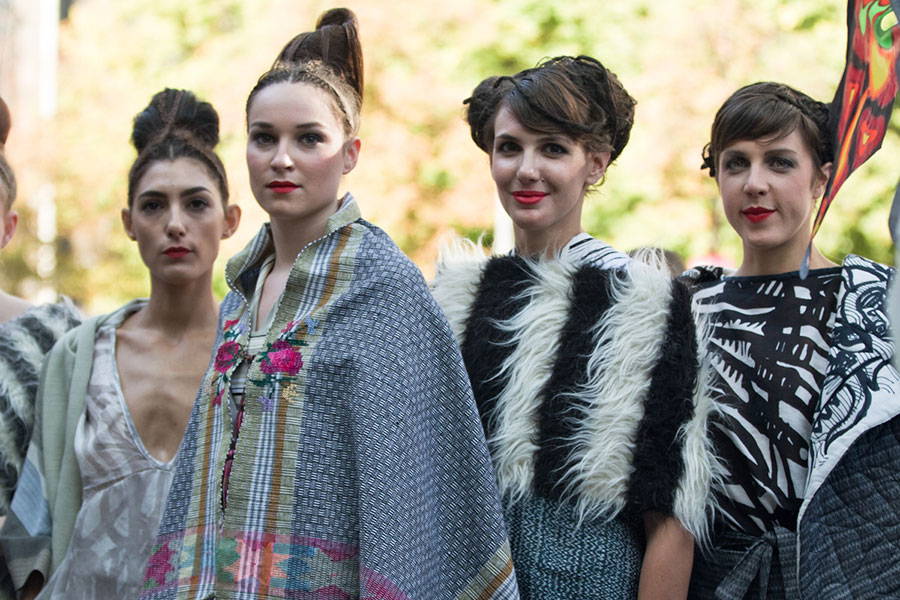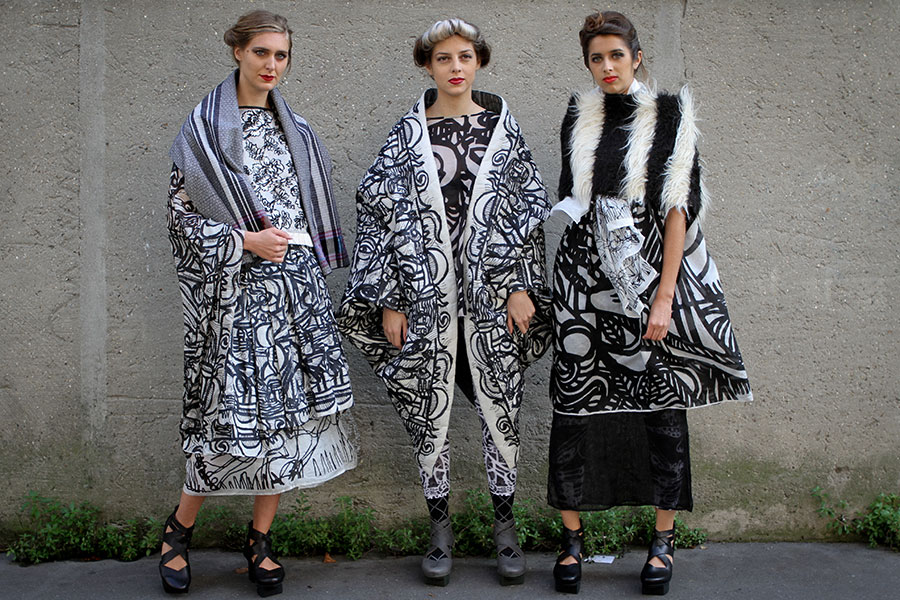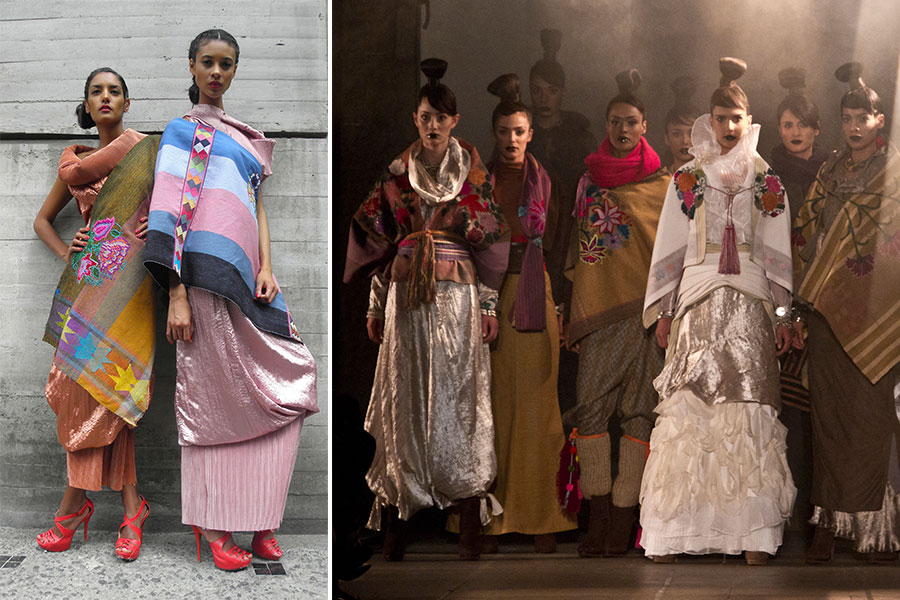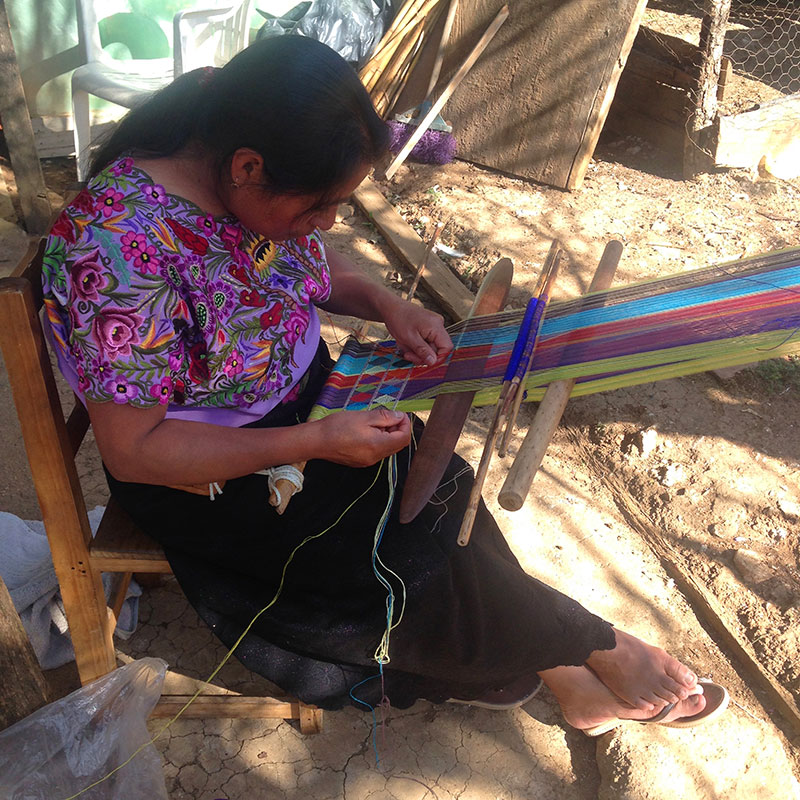- Artisanal fashion brand Carmen Rion resists mass-produced garments while celebrating Mexico’s rich cultural heritage.
- The designer has been a socially aware entrepreneur for over 20 years, working with native communities to bring traditional fabrics to contemporary fashion.
- Rion was the first designer to feature the women who make her garments as models in fashion shows and also includes them in the design process.
- She helps communities renovate their culture and identity, while the garments are recognized in the fashion capitals of Paris and London.
Many fashion designers will spot an indigenous design on their travels and become inspired. It’s usually captured on a mobile phone or hurriedly scribbled in a notebook, before being whisked away from the source and reproduced in a design studio on the other side of the world. The designer gets accolades for originality and creativity while some peasant women is none-the-wiser about her designs featuring on the fashion catwalks of Paris.
Carmen Rion (pictured in gray dress above) is a Mexican designer who experienced firsthand as a young fashion student the plagiarism that is rife within the fashion industry. She spent her first working years copying designs from around the world for Mexican fashion manufacturers. “They didn’t have the dignity to work with their own local designers,” she says. “Most of them are now broke.” She points to the rich heritage of British textiles as a positive example of how a culture can celebrate local talent, and reap the economic rewards that come with it.
Rion has worked with indigenous artisans, mostly women, from the southern state of Chiapas in a number of her collections and happily acknowledges them, even to the point of being the first to include them on the catwalks of her fashion shows. “To them, weaving and embroidering is like praying. It’s a tradition for them to weave the stories of their lives, alone every afternoon,” says Rion. “We make beautiful luxury products together that allow them to work from home, mind their children and make a decent wage.”

The rebozo, a colorful scarf that is synonymous with Mexico, is one of the fashion items Rion has reinvented with these women. The rebozo became synonymous with rebels during the 1910 Mexican Revolution and the generously sized folds were even used to smuggle weapons. First introduced by Spanish colonizers as a shawl in the 1500s, the rebozo has been ‘reclaimed’ by Mexican designers, like Rion, and are now sent out into the world as symbols of national pride.
However, the fashion world is not one big party, as many might believe, and Rion has not endeared herself to some of the major fashion weeks in Europe, many of whom don’t invite her anymore. “I don’t follow their rules. My way is different. I follow what is instinctively right for my label and the people I work with,” she says. “We’re not big enough to be a fashion leader like Chanel, but we’re our own small leader within sustainable fashion.” She sounds like many visionaries who face rejection and are sidelined before they become the next big thing.

“When ethical fashion first became popular, around 10 years ago, the clothes were badly designed and fabrics were unpleasant,” she recalls. “They were made from natural fibers and were organic, but they weren’t nice. It was all beige and hippy,” she says. Instead, Rion has tried to make her ethical clothing comfortable, trendy and sexy. “Fashion is full of crap,” says Rion. “I’m not comfortable with the pressure of the ‘trend.’ I’m sincere, clear-headed and spontaneous – the opposite of what you usually find in the fashion world, especially here in Mexico.”
She’s hoping the Sustainable Luxury Award she has just received from the IE Business School in Madrid will change the way people see her work. The award recognizes luxury brands around the world that have built sustainability into their core practices.

Fashion from Mexico is new and exciting and Rion is leading (dare I say it) a trend that is using the culture of indigenous tribes in a way that’s not been seen before. Western takes on Mexican design are seen as kitsch, with local fashionistas preferring to mix local designs with big name brands such as Louis Vuitton or Hermes. It’s an exciting mix that has instilled pride among Mexicans, who are not afraid of combining their artisanal cultural heritage with high-end luxury brands. “With no formal fashion structures we are free to do what we want,” says Rion.

Yet, could ethical fashion be just another trend, something that disappears within a few years? Rion seems to think this might be the case for some brands, but not hers. “This is a way of life for me,” she says. “It’s a way of designing, thinking and making; part of who I am. Many big brands project an ethical fashion image to sell more clothes, they don’t really care about sustainability.” Before Rion can be labeled a sour outcast of the fashion world, she explains her hopes for the industry, which is surprisingly upbeat. “If Chanel can make sustainable fashion that would be great,” she says. “The problem with most sustainable fashion is that it’s boring. I want to make fashion trendy, sexy and nice – and sustainable. ” Rion is not prepared to sacrifice her principles for fast, mass-produced garments that might easily make her more money.
After years of fashion studies Rion has learned more about fine garment stitching from artisanal craft women in the Chiapas communities than her studies could ever have taught her. The women work with her to develop ideas, and in addition to getting a fair-trade wage, they benefit from preserving traditional techniques.
“I’m not interested in creating a huge studio that churns out hundreds of copies,” she says. Instead, she takes thread, fabric and a few ideas to the rural women, who take their own time in creating items of unique beauty. “They’re certainly not maquila’s,” says Rion – referring to the Mexican name for assembly line workers who each do a simple, repetitive task in a factory. “Everyone’s involved in their own creation,” says Rion. “No one sews on a pocket all day.”
Carmen Rion is a recent winner of an IE Award for Sustainability (Premium and Luxury Sectors) www.ie.edu/ie–luxury–awards





































